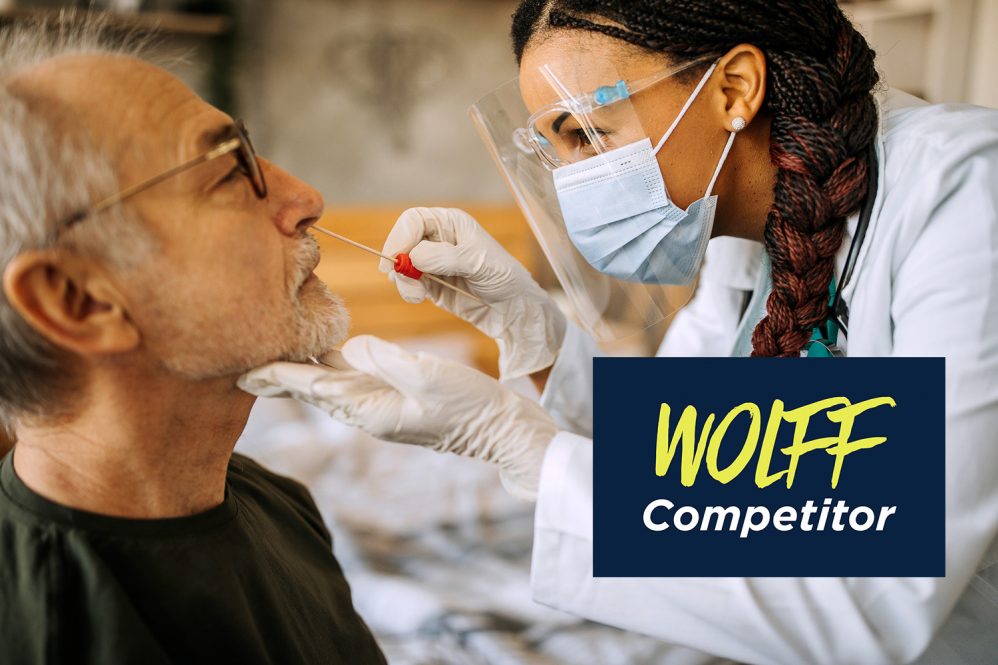Imagine waiting 36 hours for a lab report to determine if you have sepsis, a life-threatening infection that causes inflammation throughout the body.
The team of entrepreneurs at RiboDynamics, a UConn-affiliated startup, believe they can cut that wait time to two hours with their new medical technology, which detects pathogens in biological material based on the presence of specific RNA biomarkers.
“This is a life-changing technology for both patients and medical providers,’’ says Professor Dan Fabris, Harold S. Schwenk Sr. Distinguished Chair in Chemistry. “It will allow patients to get proper treatment with no delay, thus increasing the chance of healing fast, and hopefully avoid a stay in the ICU. For hospitals and physicians, this leads to a quicker diagnosis and considerable savings—up to $70,000 per patient—in terms of medical expenses.’’
The technology, in development for the last 10 years, also holds promise for many other pathogens, including HIV, Hepatitis C, and COVID-19.
RiboDynamics identified as promising startup
RiboDynamics participated in the School of Business’ Connecticut Center for Entrepreneurship & Innovation (CCEI)’s Summer Fellowship this year. That program helps UConn-affiliated companies to grow and move closer to market readiness.
RiboDynamics impressed the judges at the Summer Fellowship finale, and the company was invited to participate in the Wolff New Venture Competition and vie for a $25,000 prize. The event on Monday, Oct. 3 is the pinnacle entrepreneurship challenge hosted by CCEI.
Limin Deng, a post-doc in the College of Liberal Arts and Sciences, represented the company at the CCEI Summer Fellowship. She has played a key role in the development of the technology and the company as a whole.
“I had to learn to switch from being a scientist to being a business person,’’ Deng says. “In the beginning, it was tough to explain our work. We are trained to speak to other scientists and end-users. We had to learn to explain our idea in very simple terms for everyone to understand.’’
“The CCEI Summer Fellowship really helps startups get into the marketplace. It is a source for everything you need,’’ she says, adding that the camaraderie among all the entrepreneurs was strong and that they were always happy to share information and ideas.
Exploring RNA before it was ‘popular’
Fabris says he has been interested in RNA technology since the early 2000s, before it was popular in science and well-known to the public through mRNA vaccines. He began this specific work as a faculty member at SUNY Albany and applied for a patent in 2006, which he later received.
“We have already demonstrated the ability to detect salmonella, listeria and E.coli in milk, as well as Zika virus in mosquitos,’’ he says. “We are now testing applications in human diagnostics of infectious diseases and other health conditions.’’
The entrepreneurs are working with the Lahey Clinic in Massachusetts to investigate how well the test works in patients who have recently had a hip replacement.
“We are very far along in the development of our technology and our company,’’ Fabris says. “We are at a point where we need investors and then to focus on sales and marketing.’’
“As proven by the response to the COVID-19 pandemic, the healthcare sector severely lacks reliable, high throughput diagnostic techniques for pathogens and infectious diseases,’’ he says. “The earliest possible diagnostic results can improve the overall outcome of virtually any type of disease.’’
The 2022 Wolff New Venture Competition will be held on Oct. 3, from 5 to 7:30 p.m. on the Observation Deck at the Graduate Business Learning Center in Hartford. It will also be livestreamed at : https://ccei.uconn.edu/wolff-new-venture-competition/. This event is open to the public.



